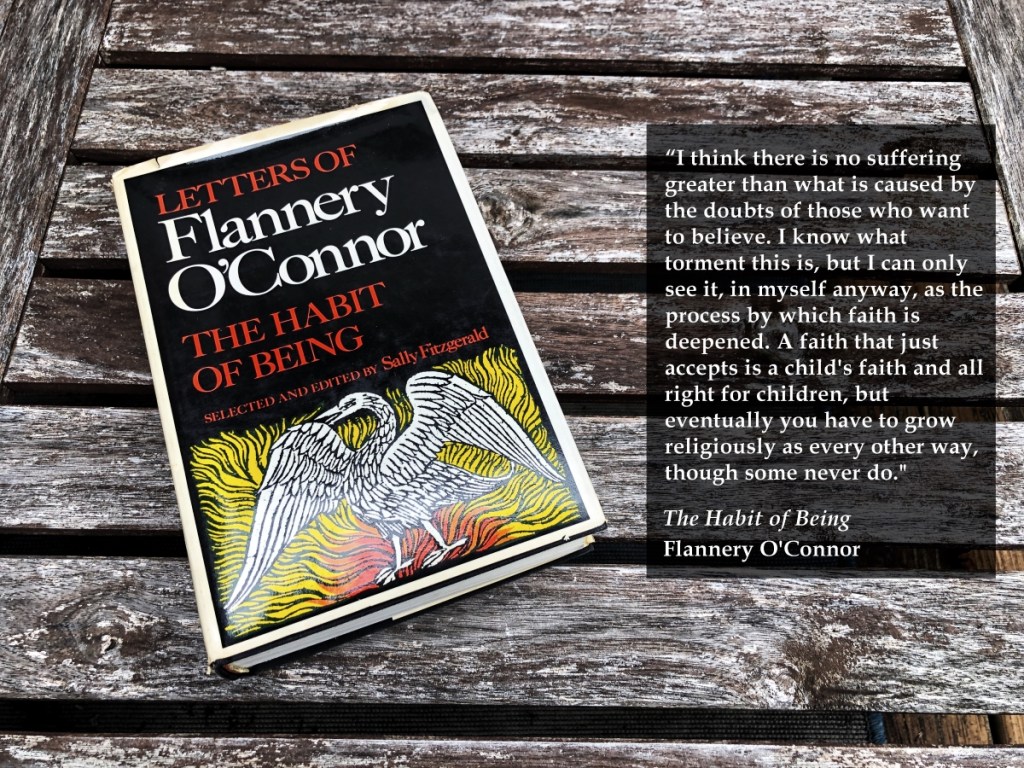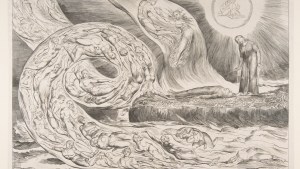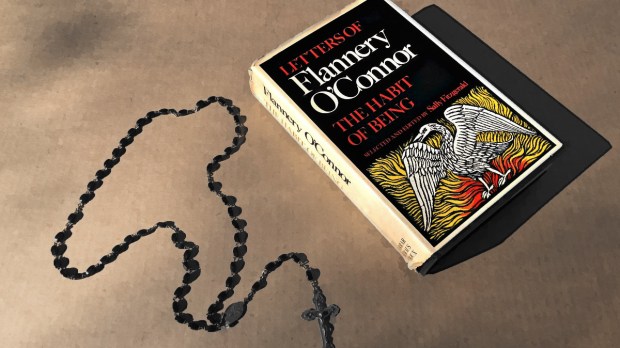Editor’s Note: “The Habit of Being” is one of the selections listed in Aleteia’s Big Winter Books for 2024. We asked the noted scholar Joseph Pearce to provide our readers with a look at this remarkable book.
Flannery O’Connor is a writer rooted in the culture of the deep South. A native of Georgia, her fictional tales are set in what she called the “Christ-haunted” South. She is, however, a writer who is also deeply Catholic. Her works are steeped in the philosophy of the faith in which she was raised and which she practiced throughout her life. This earthy and ethereal mixture of the deep south and deep faith led O’Connor to refer to herself as a “hillbilly Thomist”, a label which has been taken up in the title of a new book by Fr. Damian Ference: Understanding the Hillbilly Thomist: The Philosophical Foundations of Flannery O’Connor’s Narrative Art. This book is worth reading, as are The Abbess of Andalusia: Flannery O’Connor’s Spiritual Journey by Lorraine V. Murray and Unmasking the Devil: Dramas of Sin and Grace in the World of Flannery O’Connor by Regis Martin. There is, however, no better way of getting to know Flannery O’Connor than in the reading of The Habit of Being, a collection of her letters, in which this most enigmatic of writers reveals her loves, her likes, her dislikes and her deepest beliefs.
A love for saints and literature
We learn of her love of the saints, especially Thomas Aquinas, but also her admiration for some of the spiritual giantesses who have graced the world with their sanctity and sanity: Catherine of Genoa, Catherine of Siena, Teresa of Avila and Thérèse of Lisieux. There’s also an intriguingly gritty reference to St. Teresa Benedicta of the Cross, as she is now. Writing prior to her canonization, when she was known simply as Edith Stein, O’Connor saw in the future saint a feistiness that she admired: “If she is ever canonized, she will be one saint that I don’t think they can sweeten up on holy cards and write a lot of ‘pious pap’ about.”
Not surprisingly, considering her literary leanings, O’Connor also admires the mystical musings of John of the Cross. What is surprising, however, is the absence of any real discussion of Dante, the divine poet par excellence. She only mentions him once, but the few words say it all: “For my money Dante is about as great as you can get.”

As for her other literary predilections, she read widely and voraciously, “so much so that I didn’t have time I suppose to be influenced by any one writer.” She read the modernists, Faulkner, Kafka, Conrad and Joyce, and the Russians, “not Tolstoy so much but Dostoevsky, Turgenev, Chekhov and Gogol.” O’Connor read the best Southern writers and “all the nuts like Djuna Barnes and Dorothy Richardson and Virginia Woolf.” She claimed to have “read all the Catholic novelists,” but only lists by name Mauriac, Bernanos, Bloy, Greene and Waugh. There’s no mention of Chesterton, Belloc, Benson or Maurice Baring. Discussing the way that novelists employ their art, she is both amusing and penetratingly perceptive. Hemingway “had to test his manhood with it,” Virginia Woolf “had to make it a laboratory,” and for Aldous Huxley, it was “a place to give lectures in.”
Philosophy and miracles
Her favored philosophers were French and German. Of the former, she admired the neo-Thomists, Étienne Gilson and Jacques Maritain, but also the Christian existentialist, Gabriel Marcel; of the latter, she was influenced by the Platonist and Jewish convert to Catholicism, Max Picard, and by the philosopher-theologians, Karl Adam and Romano Guardini, the latter of whom was especially important to her thinking.
Above all, The Habit of Being is worth reading for the insights it offers into Flannery O’Connor’s faith. Discussing miracles, she called them “the great embarrassment for the modern man, a kind of scandal” because their presence prevented Christ from being “reduced to the status of a teacher, domesticated and fallible.” Christ the miracle-worker was beyond the ken and the control of rationalist reductionism. He was not “a tame lion,” to borrow a phrase from C. S. Lewis.
Bound to believe
Speaking of the liturgy and the eucharist, she distinguished between the development of doctrine and “innovation,” the latter of which was “a bad word … for it implies that this teaching was not implicit in the deposit of faith.” As for the belief in the Real Presence of Christ in the Blessed Sacrament, she insisted that Catholics were bound to believe in the Real Presence and did not have a choice in the matter. “The Mass is a memorial, but it is a memorial in which Christ is ‘really, truly, and substantially’ present under the forms of bread and wine.”
In reading Flannery O’Connor’s letters, we are being invited into a relationship of intimacy with her. We enter her life as eavesdroppers and get to know her. We discover in The Habit of Being a being of habit. Most important, perhaps, we learn from the example of a literary genius and woman of great faith the habit of being a good Catholic in a dark and dangerous world.



